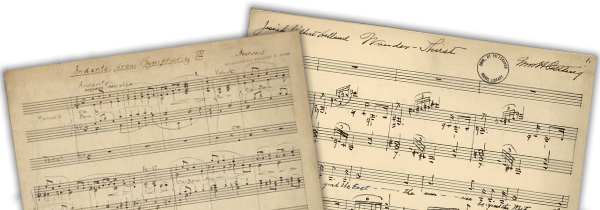“While the Bowl Goes Round” was submitted for copyright deposit on August 12, 1870, by John J. Daly of New York. The author of the lyrics is George Cooper.
A sketch for the words of a song titled “When the Bowl Goes Round” appears in Foster’s manuscript book. The position of the song, among a group of sketches for unpublished songs framed by “Jeanie with the Light Brown Hair” and “Come with Thy Sweet Voice Again” suggests that Foster worked on it in the summer 1854. Except for the title and the topic of the song, this sketch bears little resemblance to the published song.
